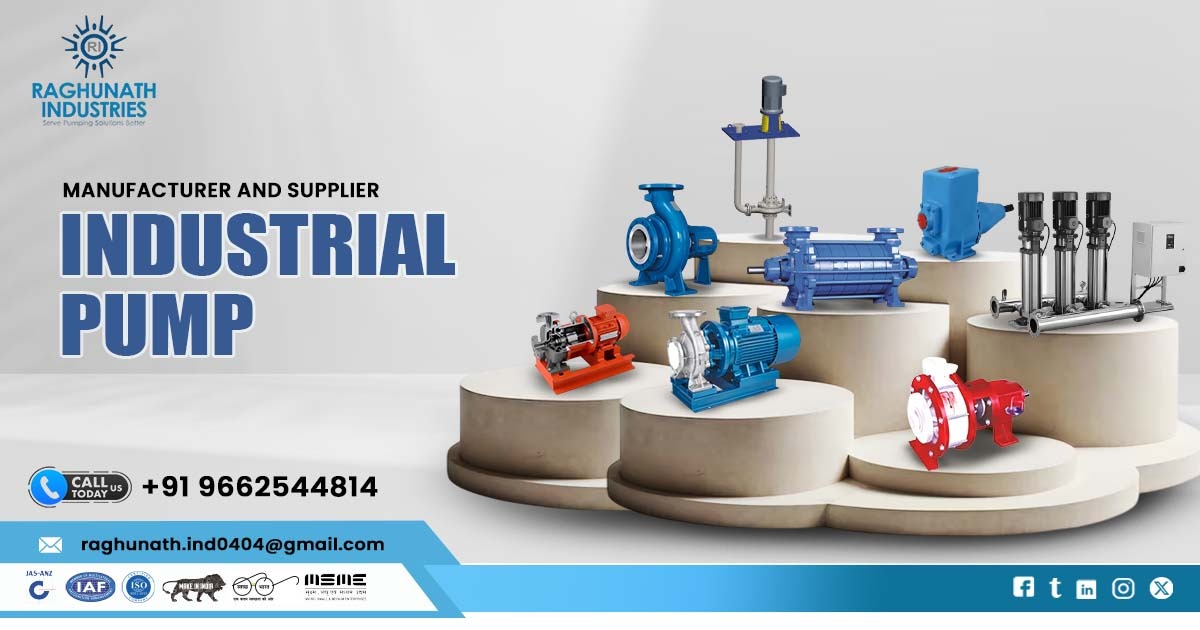Understanding Self Priming Non-Clog Mud Pumps: Innovations and Applications in the Chemical and Water Pump Industry
Estimated reading time: 5 minutes
- Enhanced Efficiency: Boosts operational efficiency by handling solids without clogging.
- Cost-Effective: Reduces the need for additional equipment, lowering overall costs.
- Adaptability: Applicable across multiple sectors, making them versatile solutions.
Table of Contents
- The Essentials of Self Priming Non-Clog Mud Pumps
- Key Features of Self Priming Non-Clog Mud Pumps
- Advantages of Using Self Priming Non-Clog Mud Pumps
- Applications Across Industries
- Integrating Self Priming Non-Clog Mud Pumps with Raghunath Industries’ Offerings
- Practical Takeaways for Your Business
- Conclusion with a Call to Action
- FAQ
The Essentials of Self Priming Non-Clog Mud Pumps
Self priming non-clog mud pumps are specifically designed to handle abrasive slurries and mud without the need for a separate priming system. This pump’s unique design includes a self-priming feature that allows it to effectively pump viscous fluids, making it especially useful in industries where high levels of solids and debris are present.
Key Features of Self Priming Non-Clog Mud Pumps
- Self-Priming Capability: Draws liquid into itself without requiring an external priming mechanism.
- Robust Construction: Heavy-duty casings and wear-resistant materials ensure long service life.
- Non-Clog Design: Minimizes the risk of clogging, allowing efficient handling of solids.
- Versatile Applications: Ideal for slurry transport, wastewater handling, and sludge transport.
- Easy Maintenance: Fewer components lead to reduced operational downtime.
Advantages of Using Self Priming Non-Clog Mud Pumps
- Enhanced Efficiency: Reduced risk of unscheduled downtime.
- Cost-Effective: Eliminates the need for separate priming systems.
- Adaptability: Applicable across multiple sectors for various engineering challenges.
Applications Across Industries
1. Pulp & Paper Industry
In the pulp and paper sector, these pumps facilitate the transport of fibrous materials and slurries. Their ability to handle high solids content makes them vital in the processing stages, allowing for uninterrupted operations and improved production efficiency.
2. Chemicals Industry
The chemicals industry frequently requires pumps that can manage abrasive substances. Self priming non-clog mud pumps are perfect for transferring chemical sludges and slurries, thanks to their robust design and resistance to corrosive materials.
3. Water & Waste Water Treatment
In wastewater treatment facilities, these pumps play an essential role in moving sludge and other solids, ensuring that treatment processes run smoothly. Their non-clog design significantly reduces maintenance requirements, making them a preferred choice for many water treatment plants.
4. Food & Beverages
The food and beverage sector also benefits from self priming non-clog pumps, particularly in processes involving ingredients with a high solids content. Their adaptability allows for flexible applications without compromising hygiene standards.
Integrating Self Priming Non-Clog Mud Pumps with Raghunath Industries’ Offerings
At Raghunath Industries, we specialize in manufacturing high-quality pumps, including self priming non-clog mud pumps designed to meet the rigorous demands of various industrial applications. Our deep understanding of the pump industry allows us to provide tailored solutions and recommendations based on the specific needs of our clients.
Complementary Products
- Multistage Pumps: Designed for high-pressure applications while maintaining efficiency.
- Vertical Submerged and Sump Pumps: Ideal for pumping water and wastewater in confined spaces.
- Magnetic Drive Sealless Pumps: Perfect for toxic and hazardous fluid transfers without leakage risk.
- Sewage Pumps: Available in both dry and wet configurations tailored to meet specific project requirements.
The synergy between our self priming non-clog mud pumps and these complementary products creates comprehensive pumping solutions tailored to meet any industrial challenge.
Practical Takeaways for Your Business
- Evaluate Your Pumping Needs: Assess the types of fluids and materials you handle to determine if a self priming non-clog mud pump is suitable for your applications.
- Prioritize Maintenance: Regular maintenance will enhance pump performance and lifespan. Choose models with easy access to components for routine checks.
- Leverage Expertise: Collaborate with industry experts, such as those at Raghunath Industries, to select the optimal pumping solutions tailored to your unique requirements.
- Consider Full-System Integration: Look for products that can work harmoniously with your existing systems, such as multistage pumps and vertical sump pumps.
Conclusion with a Call to Action
The landscape of the pump industry is continually changing, with innovations like self priming non-clog mud pumps leading the charge. At Raghunath Industries, we are committed to providing the highest quality pumping solutions tailored to the needs of various industries, ensuring unmatched performance and reliability.
Are you ready to transform your operations with our cutting-edge pump technologies? Explore our extensive range of pumps, including self priming non-clog mud pumps and other specialized solutions. Contact us today at Raghunath Industries or visit this link for more information about our products and services. Let’s work together to enhance your operational efficiency and drive your success in the competitive market.
FAQ
- What are self priming non-clog mud pumps?
- How do self priming non-clog mud pumps work?
- What industries use self priming non-clog mud pumps?
What are self priming non-clog mud pumps? They are pumps designed to move abrasive slurries and mud without needing a separate priming system.
How do self priming non-clog mud pumps work? They draw liquid into themselves using a self-priming feature, maintaining consistent operation even with varying fluid levels.
What industries use self priming non-clog mud pumps? They are used in Pulp & Paper, Chemicals, Water & Waste Water, and Food & Beverages industries, among others.

